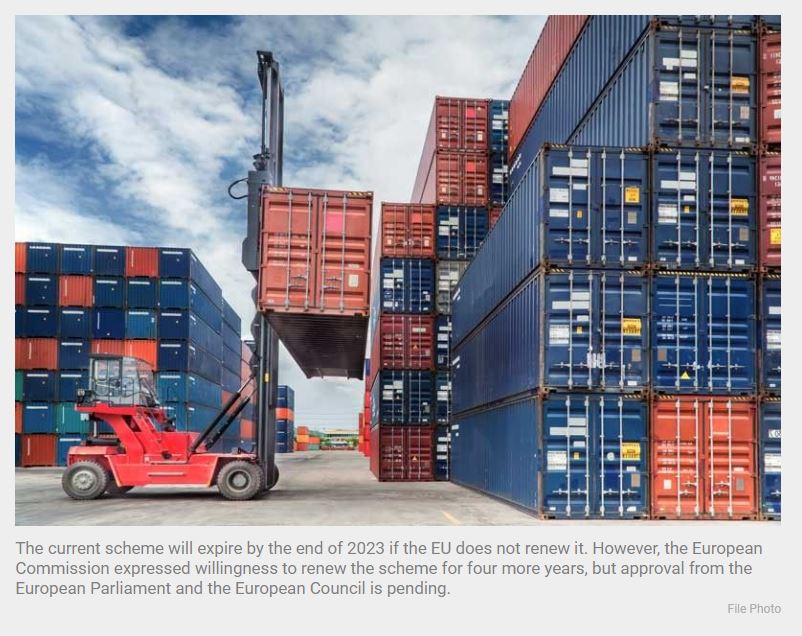Think tank: Problems to arise if Philippines’ GSP+ renewal faces delays
MANILA, Philippines — Any delays in renewing the European Union’s Generalized Scheme of Preferences Plus (GSP+) could pose serious problems to Philippine exporters, so says a trade think tank.
The current scheme will expire by the end of 2023 if the EU does not renew it. However, the European Commission expressed willingness to renew the scheme for four more years, but approval from the European Parliament and the European Council is pending.
Deborah Elms, founder and executive director of the Asian Trade Centre, explained to Philstar.com the possible outcomes.
“If there is a gap in renewal, it can leave firms to absorb higher costs, watch prices rise, or lose market share to competitors in EU markets from other locations,” she said in an email.
The Marcos Jr. administration made some noise on this proposed renewal, as Trade Sec. Alfredo Pascual knocked on some doors on his recent trip to Europe.
The EU’s GSP+ benefits Philippine businesses by allowing tariff-free exports of some 6,000 locally-made products.
“Often, once importers shift purchases to different suppliers, these relationships can be hard to rebuild,” Elms added.
The Philippines’ eligibility for this preferential scheme could disappear if the country achieves upper middle-income status. The national government has been pushing for this status upgrade in past years, supported by calls from past and current economic managers.
The Asian Trade Centre remained wary since some Philippine exports would become less competitive without these tariff reductions.
The Philippines is a party to some free trade agreements such as the China-backed Regional Comprehensive Economic Partnership and the ASEAN Trade in Goods Agreement. Besides the EU GSP+, the country also participated in a preferential trade scheme with the United States.
Elms explained that businesses and firms operating in markets without preferential schemes or free trade agreements are bound to pay the full most favored nation tariff rates for goods coming into the EU.
Government data showed that the country’s exports raked in $78.8 billion in 2022, higher by 5.6% compared to the previous year.
Majority of Philippine exports in December 2022 were shipped to China ($980.84 million), the United States ($811.5 million), Japan ($793.58 million), Hong Kong ($569.93 million) and Singapore ($346.41 million).
“Note that GSP does not work in reverse—the Philippines does not give better market access or lowered tariffs to EU firms exporting into the Philippines. So costs for imported EU products should not be affected,” she added.
Source: https://www.philstar.com/business/2023/07/07/2279361/think-tank-problems-arise-if-philippines-gsp-renewal-faces-delays


 English
English




